The Best MBA Programs in the United Kingdom
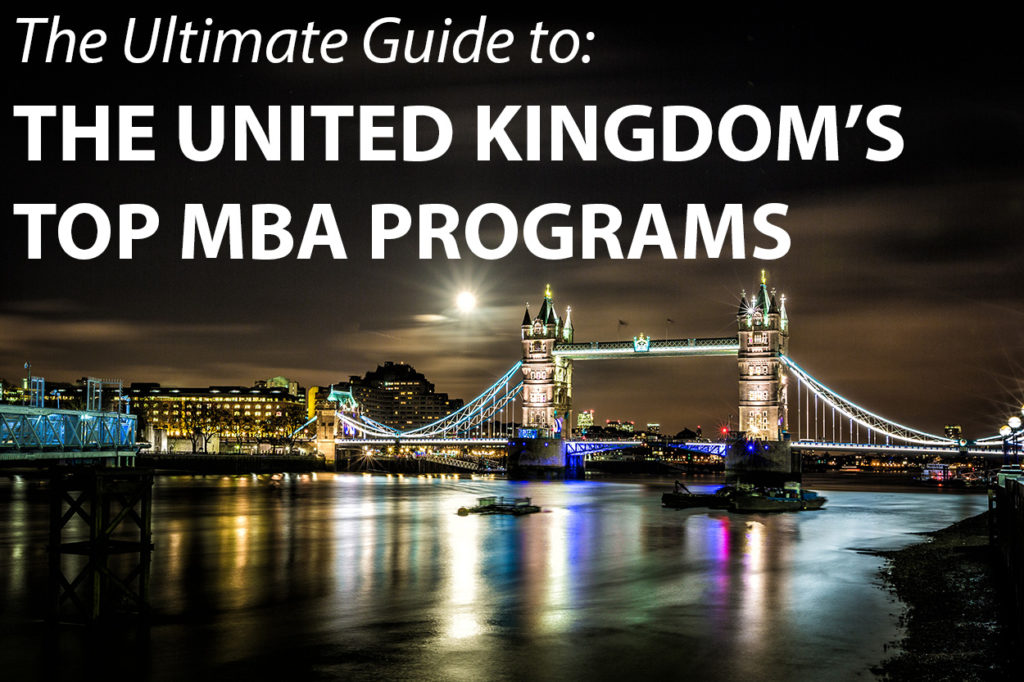
Written by Molly Ellison, photo courtesy of Davide D’Amico via Flickr.
Looking for the best full-time MBA programs in the United Kingdom? Here’s your ultimate guide! Read on to compare the country’s best MBA programs head-to-head. Want more personalized advice? Get the inside scoop from Admissions Directors and alumni of the UK’s best programs.
- 5 REASONS TO GET YOUR MBA IN THE UNITED KINGDOM
- WORKING IN THE UNITED KINGDOM AND POST-MBA CAREER OPPORTUNITIES
- TOP FULL-TIME MBA PROGRAMS IN THE UNITED KINGDOM
- APPLICATION TIPS FROM BRITISH MBA ADMISSIONS DIRECTORS
- WHAT’S IT REALLY LIKE AT TOP BRITISH MBA PROGRAMS? (STUDENT OPINIONS)
- HEAD TO HEAD – LONDON BUSINESS SCHOOL MBA vs. OXFORD SAID MBA vs. CAMBRIDGE JUDGE MBA vs. MANCHESTER MBA vs. WARWICK MBA vs. IMPERIAL MBA vs. CASS MBA vs. CRANFIELD MBA
- GET FREE SCHOOL SELECTION HELP
5 Reasons to Get Your MBA in the United Kingdom
1. Prospective students have a range of world class options to choose from. Thirteen of the UK’s MBA programs rank in the Financial Times’ Top 100 and seven are recognized as top international programs by Bloomberg Businessweek.
2. International students make up the vast majority of many MBA program cohorts, giving most programs a truly global perspective. The UK student visa application process is also fairly straightforward, though staying in the country post-graduation is dependent on one’s employment status.
3. The UK’s capital, London, is a financial hub for both the country and the world. More than 250 foreign banks are based in the city and some rankings say it is the most competitive financial center on the planet. But, there’s more to the UK than its bustling capital city. Cambridge is a major hub for startups, and Birmingham boasts a large presence of insurance, accounting, and management firms.
4. The UK is home to two of the world’s oldest and most prestigious universities – the University of Oxford and the University of Cambridge – both of which also boast top-ranked MBA programs that offer unique opportunities for the atypical MBA candidate.
5. Many top MBA programs in the UK are only one year long and focus on general management. This makes studying here ideal for applicants looking to maximize return on investment; seven of the eight programs covered in this guide are ranked in the top 50 for value for money by the Financial Times.
Working in the United Kingdom and Post-MBA Career Opportunities
- Visa – Full-time MBA students can apply for a Tier 4 General Student Visa. There is no guarantee one can stay in the country post-graduation, though. If you want to continue living and working in the UK, you’ll need an employer to secure your work visa. The British economy – and international students – have felt the weight of the recent Brexit decision. Future policies remain uncertain, so it’s important to stay up-to-date on how the decision will affect immigration policies and the country’s industries.
- Taxes – Living and working in the UK comes with high income tax rates, which are capped at 45% for the country’s highest earners. Corporate tax rates are 20% on all profits. The government offers some lucrative tax incentives for venture capitalists who invest in the country’s small businesses, such as the Seed Enterprise Investment Scheme (SEIS) and the Enterprise Investment Scheme (EIS). From 2014-2015, EIS helped 3,265 companies raise almost £2 billion from investors. The government also offers free guidance to overseas entrepreneurs starting companies in the UK through the Global Entrepreneurship Program as well as an entrepreneurship visa.
- School reputations
- London Business School (LBS) – LBS is known around the world as one of the best business schools. It’s regarded highly by employers, scoring #2 just after INSEAD on Bloomberg Businessweek’s employer survey. On the same list, it ranks as #3 for job placement and #2 for salary among top international MBA programs.
- University of Oxford – Said Business School (Said) – Said is an up-and-coming MBA program housed at one of the world’s most iconic universities. The University of Oxford is nearly 1,000 years old and consistently ranks as one of the best schools in the world. The program is built around three themes – entrepreneurship, global rules of the game, and responsible business – that push students to think beyond the traditional business mindset.
- The University of Cambridge – Judge Business School (Judge) – The University of Cambridge is regularly ranked as one of the top five institutions in the world and its business school is beginning to attract similar prestige. Financial Times currently ranks it as #1 in the world for value for money. Cambridge also has a booming high-tech community ideal for many startups.
- The University of Manchester – Alliance Manchester Business School (Alliance) – Manchester is a public-research university and the largest single-site university in the UK. The Manchester MBA program has a strong international reputation and multiple campuses worldwide, emphasizing its global presence. The business school is one of the most well-established in the country – it was founded in 1965 and recently celebrated its 50th anniversary.
- The University of Warwick – Warwick Business School (Warwick) – Warwick, located about 1 hour from London in Coventry, is known for finance, healthcare, entrepreneurship and its strong research focus. It’s currently ranked #15 in The Financial Times ranking of Europe’s top business schools.
- Imperial College London – Imperial College Business School (Imperial) – Well-known for science and engineering, Imperial College was ranked #8 worldwide by Times Higher Education. The Imperial MBA program is an incubator for aspiring consultants and bodes well in international rankings. It sits at #15 on the Bloomberg Businessweek international MBA programs ranking list, as well as #5 for job placement and #6 for salary.
- City University of London – Cass Business School (Cass) – Located in the heart of London’s financial hub, ‘Square Mile,’ Cass offers students unique access to world-class companies and business leaders. The school offers a strong value for your money with one of the most affordable tuitions among top UK MBA programs.
- Cranfield University – Cranfield School of Management (Cranfield) – Cranfield has a strong reputation within the UK and among alumni – it ranked #7 among top international MBA programs on Bloomberg Businessweek’s alumni survey. It is also well-respected among defense organizations, like the UK Ministry of Defense.
- Geography – Though the UK is relatively small geographically, it’s population dense and more than 64 million people call the nation home. London is a major economic and travel center for the country, and getting to Western Europe can be as simple as a train ride. The capital city is also a major airline hub, making it easy to catch both domestic and international flights.
- Industry – London is an international financial center, but the consulting and technology industries are also major players throughout the city and country. Though the economy has taken a hit from the recent Brexit vote and the Great British Pound (GBP) has weakened, the business community is staying optimistic.
- Return on Investment – In 2017, Financial Times ranked top UK MBA programs as follows for value for money: Cambridge, #1; Cranfield, #9; Warwick, #20; Said, #22; Cass, #28; Imperial, #37; Manchester Alliance, #43; and LBS, #84.
Top Full-Time MBA Programs in the United Kingdom
- LBS’s program consistently ranks in the single digits on worldwide rankings – Bloomberg Businessweek rated it the top international MBA in 2016. It currently sits at #6 on the 2017 Financial Times list.
- Unlike many other top MBA programs in the UK, the LBS b-school offers study options longer than one year. Students can extend from 15 months to either an 18- or 21-month course, which adds additional projects and/or international learning opportunities. This is ideal for someone looking to have a more robust MBA experience.
- Though many other business schools in the UK boast diverse classes, LBS has one of the largest international student populations – 90% of its cohort hails from outside the UK.
- The school’s international outlook is reflected in its academics – students are offered the option to study a foreign language, as well as to study on an international exchange program. The Global Business Experience trip takes students everywhere from Mumbai, India, to Lima, Peru, to apply their knowledge in international settings.
University of Oxford – Said Business School (Said)
- Established in 1996, Said is a young MBA program that carries a strong reputation in part due to its affiliation with one of the world’s oldest universities. The b-school pushes students to have an entrepreneurial attitude and analyze the social impact of business decisions.
- In addition to core courses and electives, students can immerse themselves in a subject area by participating in one of Said’s three co-curricular activities: the Oxford Said Finance Lab, the Consulting Development Programme, and the Venture Idea Exploration Workshop.
- Entrepreneurs are highly valued at Said. The school offers many resources for students looking to start their own ventures and network with other risk takers, such as the Oxford Launchpad, Skoll Centre for Social Entrepreneurship, and the Oxford Entrepreneurship Centre.
- MBA candidates at Said have the unique option to participate in the 1+1 Program, which allows them to complete both b-school coursework and a master’s degree in another chosen field in two years.
- Said has a partnership with the prestigious Schwarzman Scholars program, where students pursue a Master of Global Affairs at Tsinghua University. Schwarzman Scholars who have completed their tenure with the program are eligible to apply to Said’s MBA program, too.
The University of Cambridge – Judge Business School (Judge)
- The University of Cambridge was founded in the 13th century, though its MBA program is not even 30 years old yet. But, don’t let its age fool you. The b-school has earned its stripes and was recently ranked in the top five globally as well as the #1 best-value MBA program by Financial Times.
- The city of Cambridge is a major start-up hub in the UK and Judge takes full advantage of this. Some projects allow students to work directly with these budding companies, such as the Cambridge Venture Project. About 20% of graduates of the Class of 2016 landed careers in technology and another 16% were working in Internet/e-commerce post-graduation.
- The Judge program isn’t your typical MBA experience. It takes full advantage of its affiliation with the university, so candidates become members of one of its 31 colleges and interact with students studying in other disciplines. Students are also encouraged to delve into non-business school academic and extracurricular activities.
- Each of the Judge program’s academic modules culminates in a milestone project that gives students hands-on experience in different industries. The four projects are the Cambridge Venture Project, Global Consulting Project, Concentration Capstone Project, and Individual Project.
The University of Manchester – Alliance Manchester Business School (Alliance)
- The program was established in 1965, making it one of the first two business schools in the entire country alongside Cranfield.
- If you’re looking for hands-on experience, the Manchester MBA may be for you. Throughout the program, students complete three live consultancy projects that result in 600 client-facing hours of work. This starts on just the second day of the program.
- Manchester is the largest provider of transnational MBA education in the world, and the school has six campuses in Dubai, Hong Kong, Sao Paulo, Shanghai and Singapore. MBA candidates can take electives at one of these locations, and study tours are offered to the Shanghai and Dubai locations.
- Manchester boasts a partnership with Indiana University’s Kelley School of Business. Over two years, students can earn a Global MBA by studying at both campuses, as well through online coursework.
- Instead of submitting the standard GMAT or GRE score, students attending an on-campus interview can take the Manchester Admissions Test (MAT).
The University of Warwick – Warwick Business School (Warwick)
- Though graduates pursue careers in a range of industries, Warwick is particularly strong in finance, healthcare and entrepreneurship. The business school’s online (Distance learning) MBA is ranked #2 worldwide by the Financial Times. Though many UK MBA programs don’t offer specializations, Warwick does over these on a number of their programs.
- Warwick offers a uniquely designed Warwick Admissions Test (WAT) applicants can take in place of the GMAT or GRE.
- Warwick is located in Coventry, a city with a population of just more than 300,000 people, which limits distractions and allows students to focus on their studies. London is still accessible, though, as it’s only 1.5 hours by train to the city.
Imperial College London – Imperial College Business School (Imperial)
- 37% of the Imperial MBA Class of 2015 pursued careers in the consulting industry, which was a significantly larger proportion than any other sector. Graduates also landed jobs in energy, fin-tech, and IT, among other industries.
- There are only 50 to 60 students per cohort, allowing for intimate class sizes and a smaller learning community than some other UK programs.
- Post-graduation, 70% of the Class of 2015 stayed in the UK – that’s one of the higher rates among top MBA programs in the country.
- The program emphasizes innovative thinking through its 1-week innovation challenge and 3-month Innovation, Entrepreneurship and Design project, which culminates in pitching your idea to venture capitalists.
- Imperial’s program values global learning and requires two international trips. The European Networking Trip takes students to meet with professionals in a city outside of the UK and the Global Experience Week takes students on a weeklong study trip. Exchange opportunities are also available to MBA candidates at partner institutions worldwide. Students are also given the option to study a foreign language for elective credit.
City University of London – Cass Business School (Cass)
- If you’re looking to study in London but are on a budget, Cass is a great option. Financial Times ranked it as the #1 best value for your money MBA program in the city.
- Cass is located in the heart of London’s financial district, giving students superb access to business leaders and networking opportunities.
- Rather than offering individual courses, Cass takes an interdisciplinary angle by approaching core academic topics in ‘blocks.’ These include Strategy and Organizations, the Financial Environment, Creating Management Advantage, and Knowledge and Policy.
- International elective courses give students access to business hubs around the world. For instance, in the past there has been a study tour of Silicon Valley in California, during which students network with tech industry professionals.
- Though Cass has rolling admissions to its program, the school recommends candidates apply at least 4 months prior to the program’s September start date.
Cranfield University – Cranfield School of Management (Cranfield)
- Cranfield’s MBA program, one of the oldest in the country, is known for its leadership training.
- The university is located in a rural village in the UK, which limits the distractions many b-school students face living in a bustling city like London, or an established college town like Cambridge or Oxford.
- Each MBA class has only about 50 students and the university as a whole boasts a student-to-staff ratio of 5:1. The Cranfield program is a good fit for a student looking for face-time with professors and a tight-knit cohort.
- Cranfield offers an MBA specializing in defense that is geared toward military professionals, which is a truly unique offering among b-schools. The university has a close relationship with the UK Ministry of Defence, as well as numerous other players in the defense industry.
- The Cranfield program is one of the more affordable MBA options in the UK, with tuition being just £36,000. It’s also ranked #9 for value for money by Financial Times.
Application Tips from British B-School Admissions Directors
 “Well the candidates who have three years of experience that we admit all have very high quality experiences that they bring to the table. You have to be realistic about your profile and what you’ve done to date… See if you’ve done something that can be classed as exceptional. So, that could be an amazing progression through your company, it could be some interesting international experience, or it could be taking on great responsibility in a particular project or in team management.” -James Barker, former MBA Admissions Coordinator, The University of Cambridge – Judge Business School
“Well the candidates who have three years of experience that we admit all have very high quality experiences that they bring to the table. You have to be realistic about your profile and what you’ve done to date… See if you’ve done something that can be classed as exceptional. So, that could be an amazing progression through your company, it could be some interesting international experience, or it could be taking on great responsibility in a particular project or in team management.” -James Barker, former MBA Admissions Coordinator, The University of Cambridge – Judge Business School

“I think GMAT has become a problem in the industry… I think that programs focus on it too much. The trouble is, we have to pay attention to GMAT scores. I’d love it if we could be a school that unilaterally breaks away from that, but it’s unlikely in practice… If it was a 650 [GMAT score], and it was mostly being carried by incredible mathematical ability, then I’d need to do some digging… in an interview, I’d be trying to figure out if this person is up to the job of expressing themselves in assignments and presentations. If it’s a balanced score, then I might not be worked up about that.” -Dr. Michael Shulver, former Assistant Dean: Generalist Masters Programmes, The University of Warwick – Warwick Business School
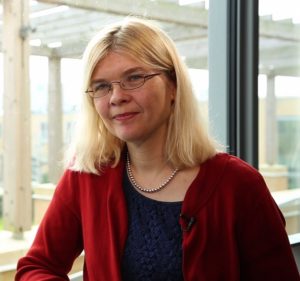
“We look holistically at the candidate and we understand that people have different starting points in life and different backgrounds… If we don’t think it’s a good fit, we tell you quite early on in the process. But, we understand that people have different stories… Not everyone has had the opportunity to go to an elite university or looks like a particular type of candidate. We look for potential, for motivation, for ambition.” -Dr. Dana Brown, former MBA Program Director, The University of Oxford – Said Business School

“I can’t emphasize enough how important professional experience is for the Manchester MBA. The reason experience is key for us is because of the way the program is built. Because we take [students] outside the classroom so much we have to be confident about their ability to perform in industry… If you already have quality professional experience and already had an impact in your organization or industry they will be transferrable skills that will work well with the Manchester MBA. And we will work with you in the Manchester MBA to transform you and those skills will be further developed in industry once you graduate.” -Chris Healy, Head of MBA Marketing & Recruiting, The University of Manchester – Alliance Manchester Business School

“The application form and essays are a great introduction to you, offering information on your life and career so far and a little on your hopes and dreams. But the real story-telling opportunity in the LBS process comes with the alumni interview. Every successful applicant has an alumni interview, but not all applicants are selected for interviews and not all interviewees are successful. We gain a HUGE amount from the interview process and love having our alumni conduct them, so that you can learn a huge amount about life at LBS too!” -David Simpson, Admissions Director, London Business School
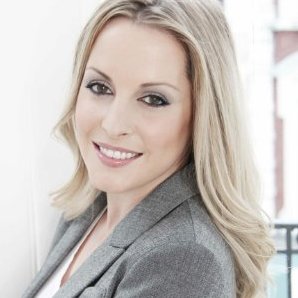
“Just showing that they’ve done their research and they know about this school, and showing that really have specific questions about this program… It shows that the candidate is actually very interested and has looked into the website first.” –Vicky Allard Chilten, Head of MBA Recruitment and Admissions, City University London – Cass Business School

“It surprises me that many people are prepared to invest so much in their education, with minimal interaction with the recruitment team. We are there to help and advise. You can request a personal consultation for example. This can help you with fine-tuning your application, but also to assess whether our MBA (or indeed any MBA) is the right one for you. A good MBA Admissions advisor should not be afraid to recommend another school, or another qualification altogether; it is not in our long-term interest to convince you to enter into an ill-fitting programme.” -Phil Carter, Head of Programmes Marketing and Recruitment, Imperial College London – Imperial Business School

“We want to know about you as a person and a professional, and to know more about what makes you tick. So we want to know what you have achieved, what motivates you, where you see your future, what you care about. We expect you to be able to show that you’ve made a real difference in your field. We want you to be honest with both yourself and us to tell us about your successes and your failures.” -David Simmons, MBA Admissions Director and Director of International Development, Cranfield University – Cranfield School of Management
What’s it Really Like at Top British MBA Programs?
(click to get in-depth interviews with each school’s MBA Ambassador)
Join our Ambassador’s Forum to get the inside scoop from British MBA students and recent alumni.
 “In my view, Oxford truly comes into its own when one, (thankfully, under explicit encouragement) begins to explore beyond the confines of the b-school classroom. When one is able to attend talks at the Martin, Mathematics, Geography, Medicine, Philosophy, Politics or Economics Schools, the Union, or the plethora of events at the various colleges – one finds it difficult to deny the wisdom of the Chinese proverb that goes ‘A single conversation with a wise man is worth 10 years reading books.’” -Arvind Jayakumar, Class of 2017, University of Oxford – Said Business School
“In my view, Oxford truly comes into its own when one, (thankfully, under explicit encouragement) begins to explore beyond the confines of the b-school classroom. When one is able to attend talks at the Martin, Mathematics, Geography, Medicine, Philosophy, Politics or Economics Schools, the Union, or the plethora of events at the various colleges – one finds it difficult to deny the wisdom of the Chinese proverb that goes ‘A single conversation with a wise man is worth 10 years reading books.’” -Arvind Jayakumar, Class of 2017, University of Oxford – Said Business School
“The London offices of big consulting firms do a lot of activity on campus at LBS – and I seriously mean a lot. It’s not just the ‘official’ events through Careers Services, but they do many ‘unofficial’ events through the clubs at LBS… What does this mean? It means that you’ll get to know the London office of the consulting firms very well – excellent if you wish to work in the London office post-MBA, not so good if you wish to work at other offices. That’s not to say that you can’t get a spot in the London office if you were to attend another school, but I’d say it definitely looks like you’re in a more advantageous position being at LBS. And in fact, the largest proportion of summer interns and full-time hires at the London office are from LBS. To sum up my advice to MBA Admits: if you want to work in London, definitely pick LBS for the highest exposure to London offices..” -MBA: in Pursuit blog, MBA student blogger from New Zealand, London Business School
 “One of the primary motivations that drove my choice of the Cambridge MBA is its proximity to the ‘Silicon Fen,’ a large cluster of high-tech businesses focusing on software, electronics and biotechnology. Many of these businesses have connections with the University of Cambridge and the area is now one of the most important technology centres in Europe. This is supported by the founding of Cambridge Science Park in 1970 and the Cambridge-MIT institute, set up in 2000 by the then Chancellor to the Exchequer Gordon Brown, and allows the University of Cambridge to leverage the expertise of MIT.” -Somesh Dwivedi, Class of 2016, The University of Cambridge – Judge Business School
“One of the primary motivations that drove my choice of the Cambridge MBA is its proximity to the ‘Silicon Fen,’ a large cluster of high-tech businesses focusing on software, electronics and biotechnology. Many of these businesses have connections with the University of Cambridge and the area is now one of the most important technology centres in Europe. This is supported by the founding of Cambridge Science Park in 1970 and the Cambridge-MIT institute, set up in 2000 by the then Chancellor to the Exchequer Gordon Brown, and allows the University of Cambridge to leverage the expertise of MIT.” -Somesh Dwivedi, Class of 2016, The University of Cambridge – Judge Business School
 “The MBA challenges you in so many different ways, and not just from an academic standpoint. The weeks are generally full and intensive with a mixture of lectures, workshops, leadership activities, group work, recruiter events and much more… Part of the reason I chose to do my MBA at Warwick Business School was for the opportunity to develop my leadership capability, learn more about business on a broader scale and to enhance my professional network. The programme at WBS is designed in such a way that it enables you to achieve all of this and opens the doors to new opportunities that you didn’t even know existed.” -James Moody, Class of 2017, The University of Warwick – Warwick Business School
“The MBA challenges you in so many different ways, and not just from an academic standpoint. The weeks are generally full and intensive with a mixture of lectures, workshops, leadership activities, group work, recruiter events and much more… Part of the reason I chose to do my MBA at Warwick Business School was for the opportunity to develop my leadership capability, learn more about business on a broader scale and to enhance my professional network. The programme at WBS is designed in such a way that it enables you to achieve all of this and opens the doors to new opportunities that you didn’t even know existed.” -James Moody, Class of 2017, The University of Warwick – Warwick Business School
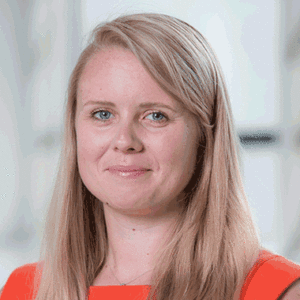 “Studying an MBA at Imperial while running a small business means you have access to a wide range of entrepreneurial resources and an entrepreneurial network. This year, Imperial opened the Enterprise Lab, which is a great space where entrepreneurs and start-ups can go to work on their business ideas. I have met several potential customers in this space and it is a creative open space for brainstorming ideas.” -Suzy Kerton, Class of 2017, Imperial College London – Imperial Business School
“Studying an MBA at Imperial while running a small business means you have access to a wide range of entrepreneurial resources and an entrepreneurial network. This year, Imperial opened the Enterprise Lab, which is a great space where entrepreneurs and start-ups can go to work on their business ideas. I have met several potential customers in this space and it is a creative open space for brainstorming ideas.” -Suzy Kerton, Class of 2017, Imperial College London – Imperial Business School
 “The international opportunities incorporated into the programme are fantastic. For example, my cohort got to meet the Icelandic President during the International Consultancy Week and Archbishop Desmond Tutu on the South African elective – these are not the sort of opportunities many schools can boast of.” -Gbonju Fanimokun, Class of 2014, City University of London – Cass Business School
“The international opportunities incorporated into the programme are fantastic. For example, my cohort got to meet the Icelandic President during the International Consultancy Week and Archbishop Desmond Tutu on the South African elective – these are not the sort of opportunities many schools can boast of.” -Gbonju Fanimokun, Class of 2014, City University of London – Cass Business School
“It’s an incredibly multi-disciplinary course, which means it is great for learning what you’re good at (and what you’re not good at!). I think having spent time in the workforce helps me to understand the relevance and importance of all the subjects we study. The group isn’t too big, which is a real bonus. It means the class size is manageable and the more introverted individuals amongst us don’t feel lost in the crowd. The class size and the slightly remote location means we have bonded together strongly and that people are open and relaxed and comfortable expressing their opinions, which I believe is crucial for getting the most out of an MBA.” -Hamish McLeod, Class of 2017, Cranfield University – Cranfield School of Management
 “The capstone of the whole course [International Business Project] is certainly its biggest challenge. While your learning and enjoyment varied considerably depending on who your client was, you would always remember what you’d been through. In my case it was a relatively smooth process that delivered insights into market entry strategy and dealing with business in completely new cultural contexts. In the end we managed to deliver a structured, logical piece of analysis that was commended by the client – one of my proudest moments on the course.” -Alun Lucas, Class of 2014, University of Manchester – Alliance Manchester Business School
“The capstone of the whole course [International Business Project] is certainly its biggest challenge. While your learning and enjoyment varied considerably depending on who your client was, you would always remember what you’d been through. In my case it was a relatively smooth process that delivered insights into market entry strategy and dealing with business in completely new cultural contexts. In the end we managed to deliver a structured, logical piece of analysis that was commended by the client – one of my proudest moments on the course.” -Alun Lucas, Class of 2014, University of Manchester – Alliance Manchester Business School
What’s Next?
Contact our team to get free business school selection help.
Want a comprehensive picture of the UK’s leading MBA programs? Read below for a head-to-head comparison of schools with detailed info on admissions, curricula, job placements and more.
Head to Head
LBS MBA vs. Oxford Said MBA vs. Cambridge Judge MBA vs. Manchester MBA
Warwick MBA vs. Imperial MBA vs. Cass MBA vs. Cranfield MBA
LBS MBA vs. Oxford Said MBA vs. Cambridge Judge MBA vs. Manchester MBA
| LBS | Oxford - Said | Cambridge - Judge | Manchester - Alliance | |
|---|---|---|---|---|
| Degrees Offered | MBA | MBA Oxford 1+1 program (dual degree) | MBA | MBA Kelley-Manchester Global MBA |
| Class Size | 411 | 327 | 157 | 109 |
| GMAT (avg) | 701 | 692 | 690 | 627 |
| Age (avg) | 32 | 28 | 29 | 29 |
| Work Exp (avg) | 5 | 5.1 | 6 | 7 |
| No. Nationalities | 70 nationalities | 58 nationalities | 40 nationalities | 25 nationalities |
| Start Date | August | September | September | August |
| Length | 15, 18 or 21 months | 12 months | 12 months | 12, 15 or 18 months |
| RANKINGS | ||||
| Financial Times 2017 (2016, 2015) | 6 (3, 2) | 33 (37, 22) | 5 (10, 13) | 30 (38, 35) |
| The Economist 2016 (2015) | 25 (24) | N/A | 62 (61) | N/A |
| Bloomberg Businessweek 2016 (2015) | 1 (2) | 3 (6) | 4 (8) | 19 (19) |
| Notable Rankings | #1 international MBA program by Bloomberg Businessweek. #6 worldwide by the Financial Times. | #3 on Bloomberg Businessweek's employer survey, #1 on its alumni survey. | #3 in one-year international MBA programs by Forbes. #5 worldwide by the Financial Times | #6 best MBA program outside of the U.S. by Forbes. |
| ADMISSIONS | ||||
| Requirements | Undergraduate degree or equivalent qualification Minimum 2 years' work experience | Undergraduate degree with 2.1 (3.5 GPA) or equivalent GMAT (minimum 650 suggested)/GRE score (minimum verbal score of 160 and quantitative score of 161 suggested) Proof of English language capabilities - TOEFL (minimum score of 110) or IELTS (minimum score of 7.5) 2+ years of work experience | Undergraduate degree with 3.3 GPA/top 25% of class, or equivalent Proof of English language capabilities - TOEFL or IELTS score 3+ years of work experience | Undergraduate degree with 3.3 GPA/top 25% of class, or equivalent Proof of English language skills - IELTS (minimum 6.5), TOEFL (minimum 90), PTE Academic (minimum 59-65), CPE or CAE (minimum Grade C), or India Standard X11 Examination (minimum 65% in English) 3+ years of work experience GMAT, GRE or Manchester Admission Test (MAT) score |
| Deadlines | Round 1: September 21, 2016 Round 2: January 4, 2017 Round 3: February 24, 2017 Round 4: April 21, 2017 | Stage 1: September 9, 2016 Stage 2: October 28, 2016 Stage 3: January 6, 2017 Stage 4: March 17, 2017 Stage 5: May 5, 2017 Stage 6: June 9, 2017 | Round 1: September 9, 2016 Round 2: October 21, 2016 Round 3: January 6, 2017 Round 4: March 10, 2017 Round 5: May 5, 2017 | Stage 1: September 12, 2016 Stage 2: October 10, 2016 Stage 3: November 21, 2016 Stage 4: January 9, 2017 Stage 5: February 6, 2017 Stage 6: March 6, 2017 Stage 7: April 3, 2017 Stage 8: May 2, 2017 Stage 9: June 5, 2017* Stage 10: July 3, 2017** *Final deadline for non-EU and non-UK applicants **Final deadline for UK and EU applicants |
| Application Fee | £190 | £150 | £150 | N/A |
| Tuition | £75,100 | £52,000 | £51,000 | £42,000 |
| Est Living Costs (taken from school websites) | £28,740 | £12,028 - £17,450 | Minimum £13,000 | £17,280 (18 months) £14,333 (15 months) £11,520 (12 months) |
| Application Materials | Online application 2 essays CV/Resume 2 references GMAT/GRE score Proof of English language abilities - IELTS, TOEFL, Cambridge CPE, CAE or PTE Academic score. Transcript(s) from all past universities | Online application 2 essays CV/Resume 2 references GMAT/GRE score Proof of English language abilities - IELTS or TOEFL score. Transcript(s) from undergraduate institution | Online application 3 essays 1 professional reference GMAT/GRE score Proof of English language abilities - IELTS (minimum of 7.5) or TOEFL (minimum of 110) score | Online application 2 essays 1 presentation CV/Resume 2 professional references GMAT, GRE or Manchester Admission Test (MAT) score IELTS (minimum 6.5), TOEFL (minimum 90), PTE Academic (minimum 59-65), CPE or CAE (minimum Grade C), or India Standard X11 Examination (minimum 65% in English) Undergraduate transcript Photo/name page from your passport Passport sized head and shoulders photo |
| International Opportunities | Global Business Experience - Offers international exchanges with 25 top-ranked programs worldwide | Said has a partnership with the Schwarzman Scholars Program in China. | The Global Consulting Project has students work with a multinational company from anywhere in the world for 4-6 weeks. | Six global centers students can take electives at in Dubai, Hong Kong, Sao Paulo, Shanghai and Singapore. Study tour to Shanghai or Dubai. International exchange opportunities. Partnership with Indiana University's Kelley School of Business in the U.S. |
| Scholarships | Offers a range of scholarships for students. Students looking for funding are encouraged to apply earlier. | 11 Said-specific scholarships are available, including some specifically for international students. | Offers a range of scholarships for students. Students looking for funding are encouraged to apply earlier. | Offers a range of scholarships for students. Students can only accept one institution-sponsored scholarship. |
| Location | London Business School Regent's Park London NW1 4SA United Kingdom Baker Street Station (The Underground) 21 minutes (The Underground); 15 minutes (taxi); 47 minutes (walking) | Said Business School University of Oxford Park End Street Oxford OX1 1HP | Cambridge Judge Business School, University of Cambridge, Trumpington Street, Cambridge CB2 1AG, UK | Alliance Manchester Business School Booth Street East Manchester M13 9SS, UK |
| PROGRAM | ||||
| Core Curriculum | Core Courses + Electives + LondonCAP (project-based course) + Leadership Launch + Language Learning + Summer Options (consulting team, internship, etc.) + Global Business Experience + International Exchange Programme + Business Project + Capstone Business Fundamentals Core Courses include: Understanding General Management Global Leadership Assessment for Managers Data Analytics for Managers Leading Ethical Organisations Corporate Finance and Valuation Strategy Microeconomics for Managers Accounting Marketing Managing Organisational Behaviour Operations Management | Broken up into a series of terms as follows: MBA launch, Michaelmas term, Hilary term, Trinity term, Summer, Capstone. During Michaelmas term, students take 8 core courses: Accounting Analytics Business Finance Firms and Markets Leadership Fundamentals Strategy Technology and Operations Management Marketing | The program is structured in four terms: Michaelmas - Team Building; Lent - Team Leading; Easter - Influence & Impact; Summer - Application & Re-Launch. 17 core courses include: Organisations in Context Entrepreneurship Management Science Corporate Finance Accounting Microeconomics Corporate Governance: An Economic Perspective Organisational Behaviour Management Praxis I Digital Business Strategy Marketing Cost Management Corporate Governance: Organisations Management Praxis II Macroeconomics Operations Business & Society | Broken into four themes: Management in Practice, Value Creation in Business, Tailoring Your Journey, and Professional Skills for Business. Core courses and projects include: Marketing & Operations: Operationalising and Communicating Value Accounting & Finance: Measurement of Business Value Strategy & Competition: The Practice of the Contemporary Firm Not-for-Profit Project Commercial Business Project Mergers & Acquisitions Project Skills for Leaders Guest Speaker Series International Business Project |
| Electives | 70+ electives offered, 10 minimum required and can take up to 12. Students can also take elective courses at University College London. Options include a Business Project and courses covering: Foreign languages, accounting, economics, finance, management science and operations, marketing, organisational behaviour, and strategy and entrepreneurship. | 29 options, examples include: Political Economy for Business Leaders Social Finance Supply Chain Management Business in China Program also includes summer options: 4-6 strategic consulting project, summer electives, or an internship. | 45+ offered, each student is required to take six. | 20+ electives that can be taken at the Manchester campus or abroad. |
| Concentrations | Though no explicit concentrations are offered, students are encouraged to build one using their elective courses. | Oxford's 1+1 Program is a 2-year program that allows students to complete an MBA and a master's degree in a chosen field at the university. | Eight options including: Culture, Arts and Media Entrepreneurship Energy & Environment Finance Global Business Health Strategy Social Innovation Consulting | N/A |
| CAREERS | ||||
| Placement w/in 3 months | 94% | 86% | 89% | 87% |
| Average Salary (Sign-On Bonus) | £77,693 | £59,638 | £99,025* *Average salary package, including any bonuses | £51,370 |
| Salary Increase (Source) | 92% (Financial Times) | 87% (Financial Times) | 107% (Financial Times) | 108% (Financial Times) |
| Top Geographies | 52% United Kingdom 16% Europe (non-UK) 11% Asia 7% USA/Canada 7% Latin America 4% Middle East 2% Australasia 1% Africa | 32% United Kingdom 21% North America 19% Asia 10% Europe (non-UK) 7% Sub-Saharan Africa 7% Australia and Oceania 3% Middle East and North Africa 1% South America | 33.3% United Kingdom 17.3% East Asia 12.3% Western Europe (non-UK) 11.1% Southeast Asia 11.1% North America 2.5% Eastern Europe 2.5% Australasia 2.5% Latin America & Caribbean 2.5% Middle East & North Africa 1.2% Central Asia | 55% United Kingdom 23% Asia/India 11% South America 7% Europe 2% USA 2% Africa |
| Top Industries | 35% Consulting 25% Finance 21% Technology 6% Industrials 4% Consumer & Retail 3% Healthcare/Pharma 2% Media & Entertainment 1% Energy | 40% Diversified Industry 29% Financial Services 22% Consulting 4% Nonprofit | 25% Consulting 20% Technology 16% Internet/E-Commerce 13% Industry - Other 10% Finance 6% Healthcare/Pharma/Biotech 4% Public Sector/NGO 3% Energy/Utilities 3% FMCG/Consumer Goods | 27% Technology 24% Financial Services 11% Consulting 8% Healthcare (Products & Services) 8% Manufacturing & Engineering 8% Start-Up 6% Retail 5% Other 1% Transport and Logistics 1% Consumer Goods 1% Nonprofit |
| Top Functions | N/A | N/A | 23% Consulting 16% Business Development 12% General Management 12% Marketing/Sales 7% Finance 7% Operations 6% Corporate Planning/Strategy 5% Other | N/A |
| Company Score (How many Top 10 Most Desired MBA Employers Recruit from School - McKinsey, Bain, BCG, Google, Facebook, Amazon, Goldman Sachs, Nike, Deloitte, Disney) (How many Top 50 Most Desired Employers for Business Grads Recruit from School) | (7/10) (27/50) | (8/10) (15/50) | (5/10) (11/50) | (3/10) (8/50) |
| Alumni | 42,000+ alumni in 150 countries | 10,000+ alumni in 129 countries | 8,000 alumni | 50,000+ alumni in 169 countries |
Warwick MBA vs. Imperial MBA vs. Cass MBA vs. Cranfield MBA
| Warwick | Imperial | City University London - Cass | Cranfield | |
|---|---|---|---|---|
| Degrees Offered | MBA | MBA | MBA | MBA MBA Defence |
| Class Size | 75 | 67 | 74 | 50 |
| GMAT (avg) | N/A | N/A | 648 | 680 |
| Age (avg) | 32 | 28 | 30 | 32 |
| Work Exp (avg) | 9 | 6 | 6 | N/A |
| No. Nationalities | 32 countries | 28 countries | 30 countries | 32 countries |
| Start Date | September | September | September | September |
| Length | 12 months | 12 months | 12 months | 13 months |
| RANKINGS | ||||
| Financial Times 2017 (2016, 2015) | 44 (46, 38) | 45 (35, 24) | 37 (37, 45) | 53 (57, 45) |
| The Economist 2016 (2015) | 20 (18) | N/A | 52 (52) | 49 (52) |
| Bloomberg Businessweek 2016 (2015) | 22 | 15 (20) | N/A | 14 (13) |
| Notable Rankings | #20 globally and #1 in the UK among full-time MBA programs by the Economist. | #6 for salary and #5 for job placement by Bloomberg Businessweek among top international MBA programs. | #1 best value MBA program in London by Financial Times in 2016. | #9 value for money by the Financial Times in 2017, up 13 spots from previous rankings. #6 for international one-year MBA programs by Forbes. |
| ADMISSIONS | ||||
| Requirements | Undergraduate degree with upper second class honors or equivalent. Proof of English language skills - IELTS (minimum 7.0), TOEFL (minimum 100), PTE Academic (minimum 70, 51+ in every section), or CPE or CAE (minimum Grade C). 3+ years of work experience. GMAT, GRE or the Warwick Test. | Undergraduate degree with upper second class honors or equivalent. Proof of English language skills - IELTS (minimum 7.0), TOEFL (minimum 100), or a degree from a university in an English-speaking country. 3+ years of work experience. GMAT (minimum 600) or GRE (minimum 156/550 on verbal, 158/740 on quantitative) score. | Undergraduate degree with upper second class honors or equivalent. Proof of English language skills - IELTS (minimum 7.0). 3+ years of work experience. GMAT or GRE score. | Undergraduate degree or equivalent experience. Proof of English language skills - IELTS (minimum 7.0), TOEFL (minimum 100), PTE Academic (minimum 68), or Cambridge English (minimum Grade C) test score. 3+ years of work experience. GMAT, GRE or the Cranfield Test. |
| Deadlines | Round 1: October 24, 2016 Round 2: December 5, 2016 Round 3: February 6, 2017 Round 4: March 13, 2017 Round 5: May 29, 2017* Round 6: July 31 *Deadline for international applicants | Round 1: September 30, 2016 Round 2: November 11, 2016 Round 3: January 27, 2017 Round 4: March 17, 2017 Round 5: May 5, 2017 Round 6: June 23, 2017 | Rolling admissions, though it's recommended candidates apply at least 4 months prior to the program start date. | October 30, 2016 January 29, 2017 April 9, 2017 June 25, 2017 |
| Application Fee | N/A | £100 | £100 | £0 |
| Tuition | £35,650 | £47,000 | £41,000 | £36,000 |
| Est Living Costs (taken from school websites) | £6,015 - £6,870 | £28,740 *Based on LBS estimates | £28,740 *Based on LBS estimates | £12,000 |
| Application Materials | Online application | Online application 2 references GMAT or GRE score Personal statement CV/Resume 2 essays IELTS (minimum 7.0) or TOEFL (minimum 100) score. 3-minute video pitch (optional) | Online application Personal statement 2 references GMAT or GRE score Undergraduate degree English language proficiency - IELTS score | Online application GMAT, GRE or Cranfield Test score. IELTS (minimum 7.0), TOEFL (minimum 100), PTE Academic (minimum 68), or Cambridge English (minimum Grade C) score |
| International Opportunities | Students go on a one-week trip to Vancouver, Canada, to meet with companies and collaborate with the Sauder School of Business. After completing the degree, students have the option to study abroad for 2-4 months at a partner institution through Warwick's membership in the Partnership in International Management (PIM) program. | Required Global Experience Week where students go on a study trip, as well as a European networking trip. Exchanges at eight partner universities worldwide. | International elective courses. | International Business Assignment (IBA) exposes students to international organizations. |
| Scholarships | £2 million+ is available in scholarships; scholarships tend to cover up to 50% of tuition. | Offers a range of scholarships for students worth up to £50,000. | Offers a range of scholarships for students. Students looking for funding are encouraged to apply earlier. | Offers 50 scholarships worth at least £7,500. |
| Location | Warwick Business School The University of Warwick Coventry CV4 7AL, UK | Imperial College Business School Imperial College London South Kensington Campus London SW7 2AZ United Kingdom South Kensington (The Underground) 15 minutes (The Underground); 18 minutes (taxi); 52 minutes (walking) | Cass Business School 106 Bunhill Row London EC1Y 8TZ United Kingdom Moorgate Station (The Underground) 10 minutes (public transportation); 18 minutes (taxi); 45 minutes (walking) | Cranfield University Cranfield MK43 0AL, UK 35 minutes by train to London |
| PROGRAM | ||||
| Core Curriculum | 8 required modules + a consultancy project. Required modules are: Accounting and Financial Management Innovation and Creativity in Organisations LeadershipPlus Managing in a New World Marketing Operations Management Organisational Behaviour Strategic Thinking: Strategic Evaluation and Analysis | Broken into four sections: cores 1, 2 and 3, and additional modules. Other required learning experiences include a European networking trip; the Imperial Innovation Challenge; a group consulting project or an innovation, entrepreneurship, and design project; Global Experience Week; an individual project or internship; and a capstone project. Required modules include: Accounting Business Economics Decision Analytics Organisational Behaviour Corporate Finance Design Thinking and Innovative Problem Solving Marketing Strategy Innovation and Entrepreneurship Investments and Risk Management Macroeconomics Operations Ethics and Values Strategic Problem Solving | Broken into 'blocks' that contain courses including: Block 1: Strategy & Organisations Accounting and Financial Report Organisational Behaviour Strategy Block 2: The Financial Environment Markets and Investments Analytics for Business Business in the Global Economy Block 3: Creating Management Advantage Human Resource Management Operations Management Marketing Block 4: Knowledge and Policy Corporate Governance Corporate Finance Digital Technologies and Business Innovation Strategy Project International Consultancy Week Tailored Programme Business Mastery Project | 13 required core management modules and the option to do either an internship or a company-based project. Core modules include: Accounting Strategic Marketing Strategic Operations Management Economics of Organisations and Strategy Entrepreneurship and New Venture Creation Venture Capital Investment Competition Decision Making and Data Analytics Global Macroeconomics and Business Environment Project Management Introduction Strategic Management Financial Management International Business Assignment Developing Leadership Challenges for Leaders I: Managing People Challenges for Leaders II Leadership in Action Company-Based Projects |
| Electives | Students are required to take four elective modules, some of which can be taken abroad. | About 20 are offered each year. | Students take a minimum of six electives from 30+ offered, topics include: consulting and strategy, finance, innovation and entrepreneurship, general management, marketing, and international topics. | Students take eight elective modules from around 14 offerings. |
| Concentrations | Entrepreneurship | N/A | N/A | N/A |
| CAREERS | ||||
| Placement w/in 3 months | 96% | 92% | N/A | 83% |
| Average Salary (Sign-On Bonus) | £55,604 (£7,500) | N/A | N/A | £64,039* *Median |
| Salary Increase (Source) | 74% (Financial Times) | 72% (Financial Times) | 85% (Financial Times) | 77% (Financial Times) |
| Top Geographies | N/A | 70% United Kingdom 18% Asia 9% Europe (non-UK) 3% Middle East | 62% United Kingdom | N/A |
| Top Industries | 21% Banking/Finance 19% Consulting 12% Energy 10% Technology 10% Retail 7% Fast-Moving Consumer Goods 7% Other 5% Logistics 2% Manufacturing/Engineering 2% Automotive 2% Non-Profit 2% Real Estate | 37% Consulting 11% Energy 11% Fin Tech 11% IT/Tech/Telco 9% Finance 6% Start-up 3% Engineering/Construction 3% Education 3% NGO 3% Pharma/Biotech/Healthcare 3% Transport/Logistics | N/A | 23% Financial Services 21% Other 19% Consulting 13% Energy 6% Consumer Products 6% Healthcare 6% Media 4% Technology 2% Government/Nonprofit/Education |
| Top Functions | N/A | 40% Consulting 16% Finance 16% Marketing/Business Development 12% Leadership Programme 16% Other | N/A | N/A |
| Company Score (How many Top 10 Most Desired MBA Employers Recruit from School - McKinsey, Bain, BCG, Google, Facebook, Amazon, Goldman Sachs, Nike, Deloitte, Disney) (How many Top 50 Most Desired Employers for Business Grads Recruit from School) | (5/10) (15/50) | (5/10) (13/50) | (3/10) (6/50) | (2/10) (7/50) |
| Alumni | N/A | 180,000 alumni in more than 190 countries | 38,000 alumni in 162 countries | 28,000 alumni in more than 130 countries |

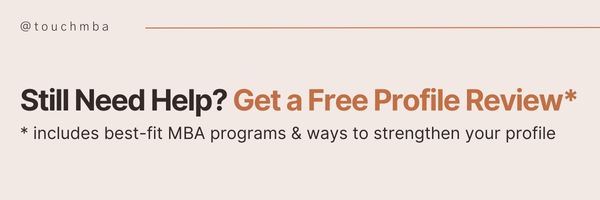
Two thoughts on “The Best MBA Programs in the United Kingdom”
Pingback: Rankings Don’t Matter – Go Where You’ll Find The Conversations You Want to Have - » Touch MBA
Pingback: Ten Countries with the Best Post-Study Work Visas for MBA Graduates (2023) - Touch MBA